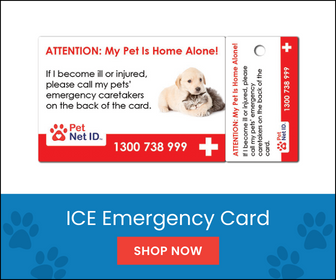
Cough in Dogs – Related Illnesses
If your pet is experiencing cough, there are a number of potential health problems which can trigger cough in dogs.
Cough in dogs can bring on notable changes in your pet dog’s health as well as attitude.
Knowing the cough in dogs is the very first measure in protecting your pet dog’s health and wellness.
We have itemized several of the usual healths issues in pets when they are experiencing cough. Please click on the web links of illnesses listed below to find out extra.

Knowing Symptoms Including Cough in Dogs
Monitor your dog’s daily activity – Try to keep a notebook of whenever your pet relieves himeself or herself, whenever his symptoms take place, when he eats and drinks, and so on.
This helps to establish a pattern to the symptoms. It can additionally be a really valuable resource for the veterinarian to diagnose your pet dog’s illness.
If your dog is slightly unwell (not eating the best for a day, uneasy, throwing up once or twice, a round of diarrhea) you can carefully observe your pet in the house as well as phone your veterinarian for recommendations.
Seek prompt vet attention with particular signs and symptoms – There are a number of severe signs and symptoms that require urgent medical attention. Do not wait on these signs and symptoms and also call your veterinarian immediately:
- Known consumption of a toxic substance.
- Unconsciousness.
- Unrelenting throwing up and also looseness of the bowels.
- Respiration problems.
- Profuse bleeding.
- Seizures that do not cease within one min.
- New or reoccuring signs and symptoms in a canine with a medical problem (diabetic issues, Addison’s disease, and so on).
- Incapable to urinate or not producing pee.
- Big swellings around the face, eyes or throat.
- Fractured bones.
Get guidance from your veterinarian on less severe symptoms – Some symptoms of health problem in dogs may be uncomfortable for pet dog and might indicate health conditions that need to be treated. Call your vet to obtain advice on treating the following signs and symptoms:
- The occasional vomiting as well as looseness of the bowels lasting longer than 1 day.
- Infrequent seizure that lasts no more than one min.
- Lethargy lasting for a longer period than eventually.
- Fever.
- Lumps or bumps that all of a sudden show up or existing ones that grow.
- Not eating for greater than 1 day.
- Limping or acting uncomfortable.
- Difficulty defecating.
- Excessive drinking.
- Swelling that appears on slowly.
- Most other odd symptom or behavior (shuddering or whimpering).
Pay attention to your fur baby’s temperament – A pet owner can learn a lot by noticing the pet dog’s behaviour including things like just how he or she is physically feeling. You’ll have to make certain his health is slowly getting better as well as reacting to medical treatment. As an example, your family pet should begin to wag his or her tail, pay attention to you and get up to greet you.
If he or she perks up and starts asking for food, then it is great sign to mean he/she is getting better.
On the other hand, if you notice your pet dog is coming to be less interactive or just lying still, she or he probably be becoming worse and require medical attention.
Observe your canine’s breathing – It is good to observe the breathing pattern of your dog and it can tell you inform you a good deal about how your dog feeling. If your dog is in pain or suffering from some form health issues, he/she may breathe heavily or pant.
In most scenarios, coughing and heavy breathing are indications of a chest infection. You ought to also keep an eye on your family pet’s gum tissues if his breathing triggers substantial chest movements.
The gums in your dog’ mouth need to be pink as well as healthy and balanced. However, if the gum tissues look tinged blue or pale, get in touch with the vet. Your pet may not be getting sufficient oxygen and could be in respiratory distress.
You can also keep an hourly record of your pet’s breathing. Generally your pet take around 20 to 30 breaths per min. If your pet’s breathing rate increases continuously, his or her health issue has deteriorated and you need to call the vet.





